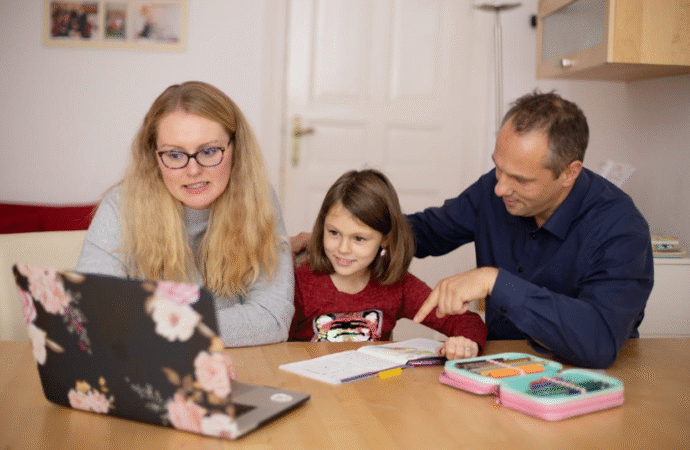Before becoming the U.S. Secretary of War, Pete Hegseth wrote half-a-dozen books. The only one that didn’t deal with military affairs and American warriors was his 2023 “Battle for the American Mind,” in which Hegseth and co-writer David Goodwin addressed the failures of American education. It discussed the century-long progressive movement that nearly buried classical Christian education, the recent critical race and sex theories introduced into public schools, and the horrible results that followed and are ongoing.
As if to underscore this thesis, the National Association of Educational Progress (NAEP) released “the nation’s report card” on Sept. 9, 2025, showing that math and reading scores of high school seniors have tumbled to record lows. Only 22% of these students tested proficient in math, only 35% in reading.
Analyzing these scores, retired teacher Larry Sand relates that some school systems, in attempts to reverse this failure, are seeking to lower proficiency qualifications. Meanwhile, as Sand points out, public education costs keep skyrocketing. In New York, for instance, costs will likely rise to $41,000 per student next year.
Currently, changes in many of our public schools designed to better equip students for the workplace and the world seem unlikely. In “Battle for the American Mind,” however, Hegseth and Goodwin offer an approach for turning around this abysmal excuse for education, suggesting an insurgency like that which Hegseth studied during his years in the military.
The first stage of this peaceful insurgency is well underway, with homeschooling and private schools constantly growing, especially since Covid’s school lockdowns. Though still only a fraction of the students enrolled in public schools, these rebels against the system are growing in numbers and are, in this instance, the insurgents.
Phase Two should bring measures like isolating and attacking teachers’ unions, which is, as Hegseth and Goodwin explain, “a tactic Saul Alinsky explains in ‘Rules for Radicals.’ The unions are the problem, not the teachers.” One key element, already underway in many places, is “to implement universal educational tax credits at the state and federal level (tax credits are preferred over vouchers, in that the former are paid by parents whereas the latter is money directly from the government.)”
In Phase Three, which Hegseth and Goodwin acknowledge is decades away, a “classical Christian education would provide the core of America’s education….” To many of us, this objective seems an impossibility, but it’s the authors’ final target.
Hegseth and Goodwin score important points throughout their call to arms. Given the advanced decay in our public schools, for instance, why do Mom and Dad continue to send their children into these classrooms, even while some of them are doing battle against this failed system? Hegseth and Goodwin urge these parents to follow in the footsteps of countless others who have turned to options like homeschooling, learning pods and co-ops, religious schools, and private academies, aiming always to equip students with a classical Christian education.
So, what can be done now?
The answer is both simple and difficult. First, parents who are dissatisfied with public schools should seek alternatives, which often means spending more money on education and drastically revising work schedules. If those alternatives prove impossible, then they might devote time each day to educating their children at home after school hours.
If their sons and daughters are weak in reading, for example, it’s time to teach phonics 15 minutes or so a day. If some oddball math program is in play at school, it’s time to go back to basics like memorizing the times table and using traditional math approaches to algebra and geometry. If the school is neglecting American history, or teaching falsehoods about our past, then parents can respond by breaking out histories, biographies, and videos that entertain and teach the American past.
When given the opportunity, those same parents can vote for such measures as educational tax credits, encouraging others to do the same, even if their own children must remain in public schools. They can encourage their pastors and church administrators to stress the importance of Christian education and to consider founding a church school. Parents can also take action themselves, found book clubs, for instance, where their children and their children’s friends read classics ranging from “Tom Sawyer” to “Great Expectations” and then gather together to discuss the book.
Near the end of “Battle for the American Mind,” Hegseth relates a conversation he had with his plumber, “Joe.” When their conversation turned to education, Joe told Hegseth that he and his wife had taken their second-grader out of school because of New Jersey’s mask mandates and had formed a homeschool pod with other parents who had done the same.
“I’ll never forget what he told me,” Hegseth writes. ‘If you don’t play their game, you don’t have to play by their rules.’”
When the playing field and the rules are stacked against winning, it’s time to take the ball and find another game.
—
The republication of this article is made possible by The Fred & Rheta Skelton Center for Cultural Renewal.
Image Credit: Pexels
30 comments















30 Comments
Madelyn65485
September 26, 2025, 2:34 pmMy friend wanted a simple side income.She gave 2–3 hours online every day Her last month total was $15,900! service.richjob2.com
REPLYRaelyn Stark@Madelyn65485
September 26, 2025, 6:39 pm<b> I am making a good salary from home $6580-$7065/week , which is amazing, under a year ago I was jobless in a horrible economy. I thank God every day I was blessed with these instructions and now it's my duty to pay it forward and share it with Everyone,
Here is I started_______ https://Www.EarnApp1.Com <b>
REPLYPeggy Eliot@Raelyn Stark
September 26, 2025, 6:40 pmI quit working at shoprite and now I make $65-85 per/h. How? I'm working online! My work didn't exactly make me happy so I decided to take a chance on something new… after 4 years it was so hard to quit my day job but now I couldn't be happier.
Here’s what I do.====> https://Www.HighProfit1.Com
REPLYWork AT Home@Raelyn Stark
September 26, 2025, 9:25 pmI am creating simply monthly $ 22000 to $ 28000 simply by doing straightforward work from home. This job is on-line and really Oed straightforward to try to to part-time or full-time even no special expertise needed for this task. Tq12 Anyone will currently participate during this job and begin earning a bit like me
by just following link…. https://www.Paycash1.site
REPLYPeterCKemp@Raelyn Stark
September 27, 2025, 6:26 amI get paid more than $120 to $130 per hour for working online. I heard about this job 3 months ago and after joining this i have earned easily $15k from this without having online working skills. This is what I do……………………………………………………………….Www.Works6.Com
REPLYAngel@Raelyn Stark
September 28, 2025, 5:27 amI get paid over 220 Dollars per hour working from home with 2 kids at home. i never thought i’d be able to do it but my best friend earns over 15k a month doing this and she convinced me to try. it was all true and has totally changed my life. This is what I do, check it out by Visiting Following Website…
REPLY.
.
HERE—————⊃⫸ https://Www.Cash43.Com
RSLewis@Raelyn Stark
September 28, 2025, 5:28 amGoogle is now paying $300 to $500 per hour for doing work online work from home. Last paycheck of me said that $20537 from this easy and simple job. Its amazing and earns are awesome. No boss, full time freedom and earnings are in front of you. This job is just awesome. Every person can makes income online with google easily….
REPLY.
More Details For Us→→ http://Www.Payathome9.Com
Juliya@Madelyn65485
September 29, 2025, 12:01 pmI make $88 an hour to work part time on a laptop. I never thought it was possible but my closest friend easily haz made $18,000 in 3 weeks with this top offer and she delighted me to join. .Visit the following article for new information on how to access…….
See more➤➤➤➤➤➤➤➤➤➤ http://Www.Cashprofit7.Site
REPLYJulia
September 26, 2025, 9:25 pmMy pay at least $300/day.My co-worker says me!I’m really amazed because you really help people to have ideas how to earn money. Thank you for your ideas and I hope that you’ll achieve more and receive vds more blessings. I admire your Website I hope you will notice me & I hope I can also win your paypal
giveaway…… https://www.Paycash1.site
REPLYEverly Evans
September 27, 2025, 10:24 amI make $100h while I’m daring to the furthest corners of the planet. Last week I worked by my PC in Rome, Monti Carlo finally Paris… This week I’m back in the USA. All I do are basic tasks from this one cool site. see it,
REPLYCopy Here→→→→→ https://Www.Homeprofit1.site
Patricia J. Scott
September 27, 2025, 12:03 pmThey supply me $80 5 an hour to finish art work on an Apple laptop. I surely didn’t think it became possible, but my depended on friend made $26,000 in simplest four weeks working on this clean opportunity and she or he or he endorsed me to give it a try. Discover more instructions through manner of manner of
visiting the next link=====➤ https://Www.Worksprofit1.online
REPLYMarcus Henderson
September 28, 2025, 6:17 amBitcoin Recovery Testimonial
After falling victim to a cryptocurrency scam group, I lost $354,000 worth of USDT. I thought all hope was lost from the experience of losing my hard-earned money to scammers. I was devastated and believed there was no way to recover my funds. Fortunately, I started searching for help to recover my stolen funds and I came across a lot of testimonials online about Capital Crypto Recovery, an agent who helps in recovery of lost bitcoin funds, I contacted Capital Crypto Recover Service, and with their expertise, they successfully traced and recovered my stolen assets.
Their team was professional, kept me updated throughout the process, and demonstrated a deep understanding of blockchain transactions and recovery protocols. They are trusted and very reliable with a 100% successful rate record Recovery bitcoin, I’m grateful for their help and highly recommend their services to anyone seeking assistance with lost crypto.
Contact: [email protected]
REPLYPhone CALL/Text Number: +1 (336) 390-6684
Email: [email protected]
Website: https://recovercapital.wixsite.com/capital-crypto-rec-1